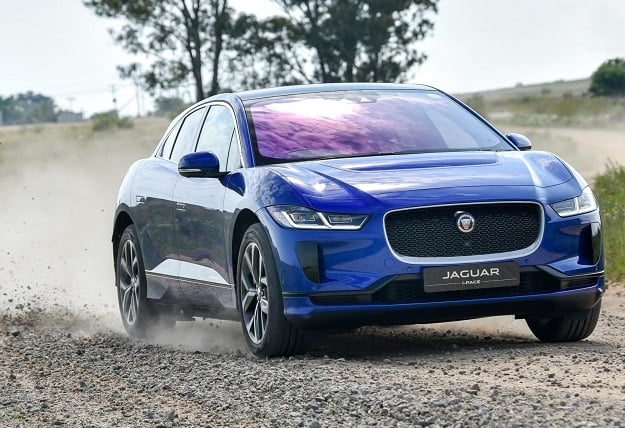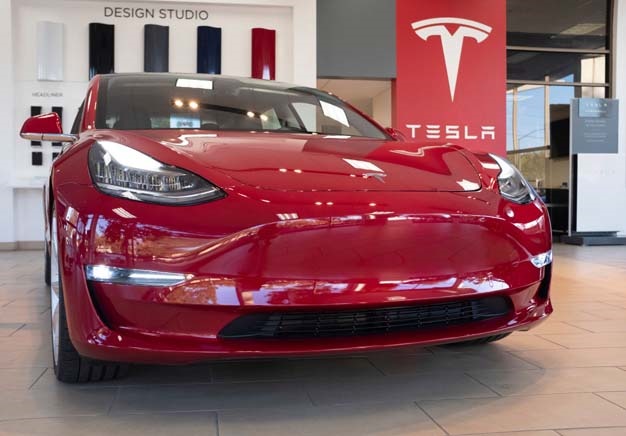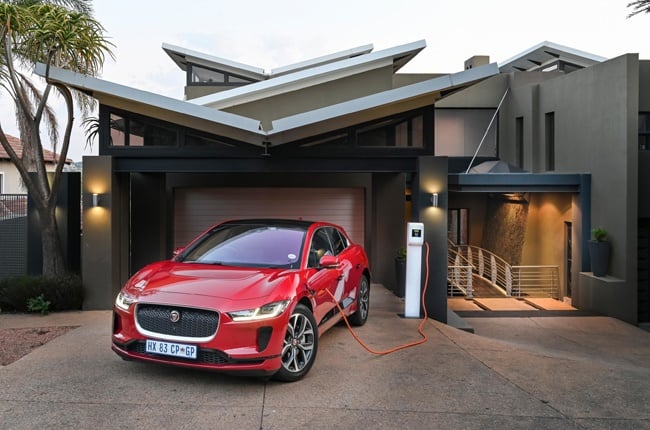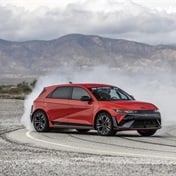• 9 September is World Electric Vehicle day.
• Jaguar Land Rover South Africa has been bullish about EV predictions.
• By 2024 there will be around 40 new EV model ranges launched from major carmakers.
• For more motoring stories, go to www.Wheels24.co.za
When the northern hemisphere sneezes, the southern catches a cold. That old saying may seem a bit insensitive given current circumstances. Still, in its figurative sense, it applies most appropriately to the automotive industry, and in particular, the future of electric mobility.
Ask ten different industry experts if and when South Africa will see electric vehicles (EVs) integrated into the market with significant numbers, and you'll likely get ten different opinions.
Jaguar Land Rover South Africa has been bullish about predictions, saying that 11% of new car sales could be electric by 2025 based on the fact that European-sourced model ranges are rapidly evolving to electrified power sources.
From now until the end of 2024, there will be around 40 new EV model ranges launched from major carmakers, and even more from the many Chinese-funded American start-up EV brands that should not be underestimated.
Image: Motorpress
My intentions, however, are not to shout projections in an industry which is already battered, bruised and begging for mercy. Covid-19 has forced a hard-reset, not only of the economy but on every aspect of the motor industry, from production and supply chains to marketing strategies, to inevitably diminished consumer appetite. Accurate forecasts are as impossible as they are foolish.
Instead, I want to relay some interesting facts which could influence the complexion of the South African car parc in the not-too-distant future.
As car sales plummeted by more than 90% in many markets globally during recent lockdown periods, the UK's figures for April revealed some interesting numbers. The fully electric Tesla Model 3 and Jaguar I-Pace were registered as the top two sellers in a market where they usually not even in contention for top 10.
Sure, some abnormalities can be expected in a month crippled by dealership closures, but the Tesla and Jaguar's combined total sales of 1 025 units comprised nearly a quarter of all UK sales in April.
Fully electric vehicle sales in the UK dropped by only 9.7%, compared to the whopping 94% drop in petrol and diesel engine types. Add hybrids to the mix and electrified vehicles scooped a third of all sales in the period.
Why is that? Admittedly a large portion of Tesla's sales can be attributed to its unique online sales model, and that many of these units had been ordered prior to the pandemic. But, it's the UK's new EV tax rules, which came into effect on 6 April, that deserves the spotlight here.
From that date, employees and employers who choose EVs as company cars pay zero tax. The move to a bracket taxation based on CO2 emissions quite clearly demonstrates how incentivisation can spark an immediate surge in demand for fully electric (with zero emissions) and plug-in hybrid (very low average emissions) vehicles.
Would an incentivisation scheme have a similar effect in South Africa? With a broader selection of EVs in the market, almost certainly. But that's not the point.
The point is that the ever-increasing appetite for electrified vehicles overseas is helping to build momentum in regions that may have so far resisted developed market mobility trends. Remember, all these new EV models aren't introduced as supplementary to existing model line-ups, they're replacing pure internal combustion powered vehicles as they come to market.
Image: Motorpress
With the launch of every new EV comes the death of more and more petrol and diesel options. The very same petrol and diesel options that dominate sales down here in South Africa.
The spread of EV across the globe is fantastic for the manufacturers scrambling to reduce average CO2 emissions across ranges under tightening government-lead carbon emissions regulations, but not so great for the consumers in countries that won't see the switch coming.
It's important to remember that the flavour of cars we sell is to a large extent dictated by the taste of the regions that supply them and that the vast selection of vehicles available in South Africa may shrink radically.
Will you still be able to buy petrol and diesel-powered cars after mass EV adoption?
Absolutely, and you likely will for quite some time. But will the massive choice of models, derivatives, trim levels and engine options still exist? Certainly not. The automotive potpourri we know as the South African new-vehicle market will inevitably be rationalised into much simpler line-ups with a heavier slant on electric.
Without creating an environment for rapid consumer adoption of electrified vehicles in South Africa, we will undoubtedly place an industry, accountable for up to 8% of South Africa's GDP, at risk for the future.
Richard Gouverneur is the Managing Director of Jaguar Land Rover South Africa and sub-Sahara Africa. Image: JLR




 Publications
Publications
 Partners
Partners















